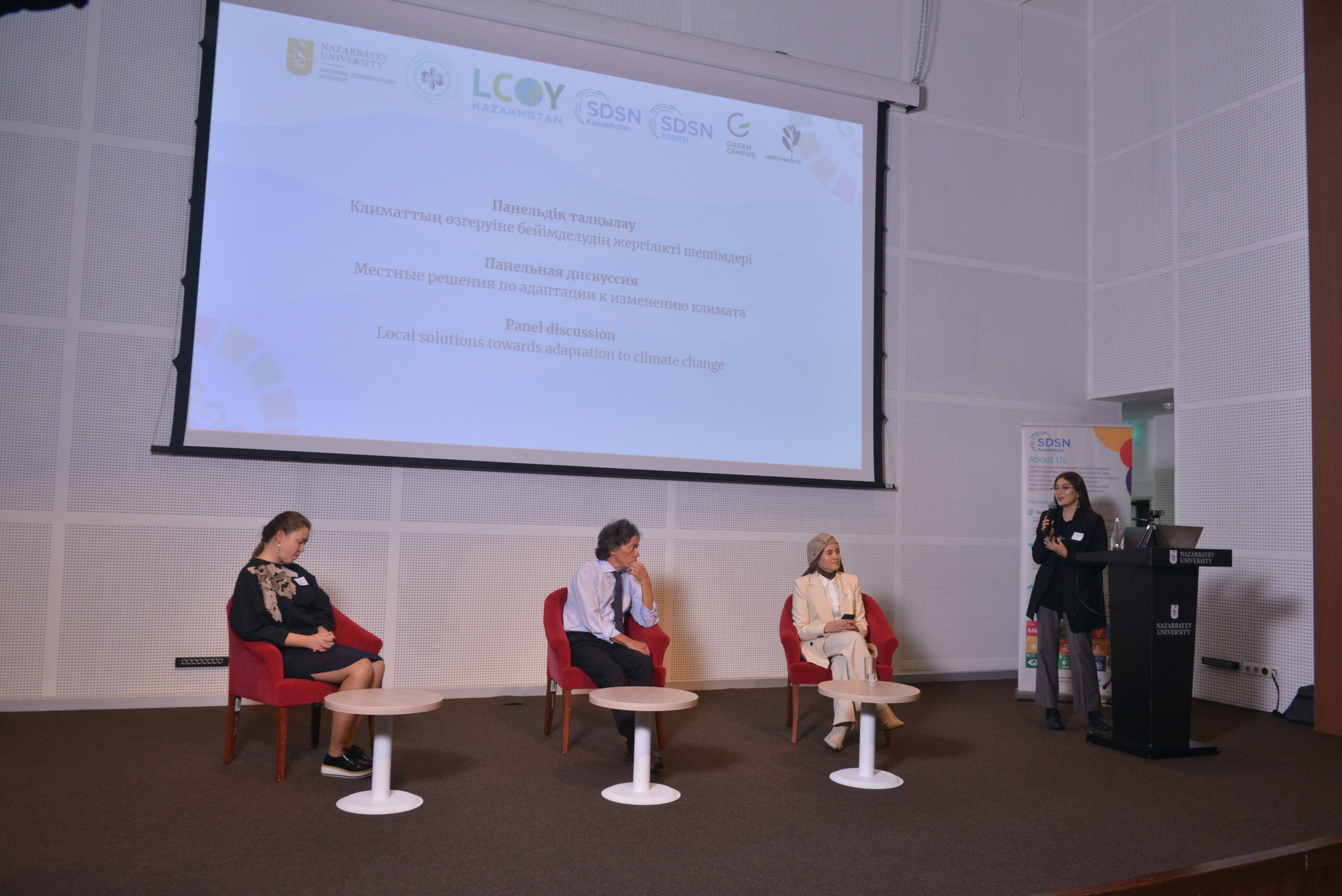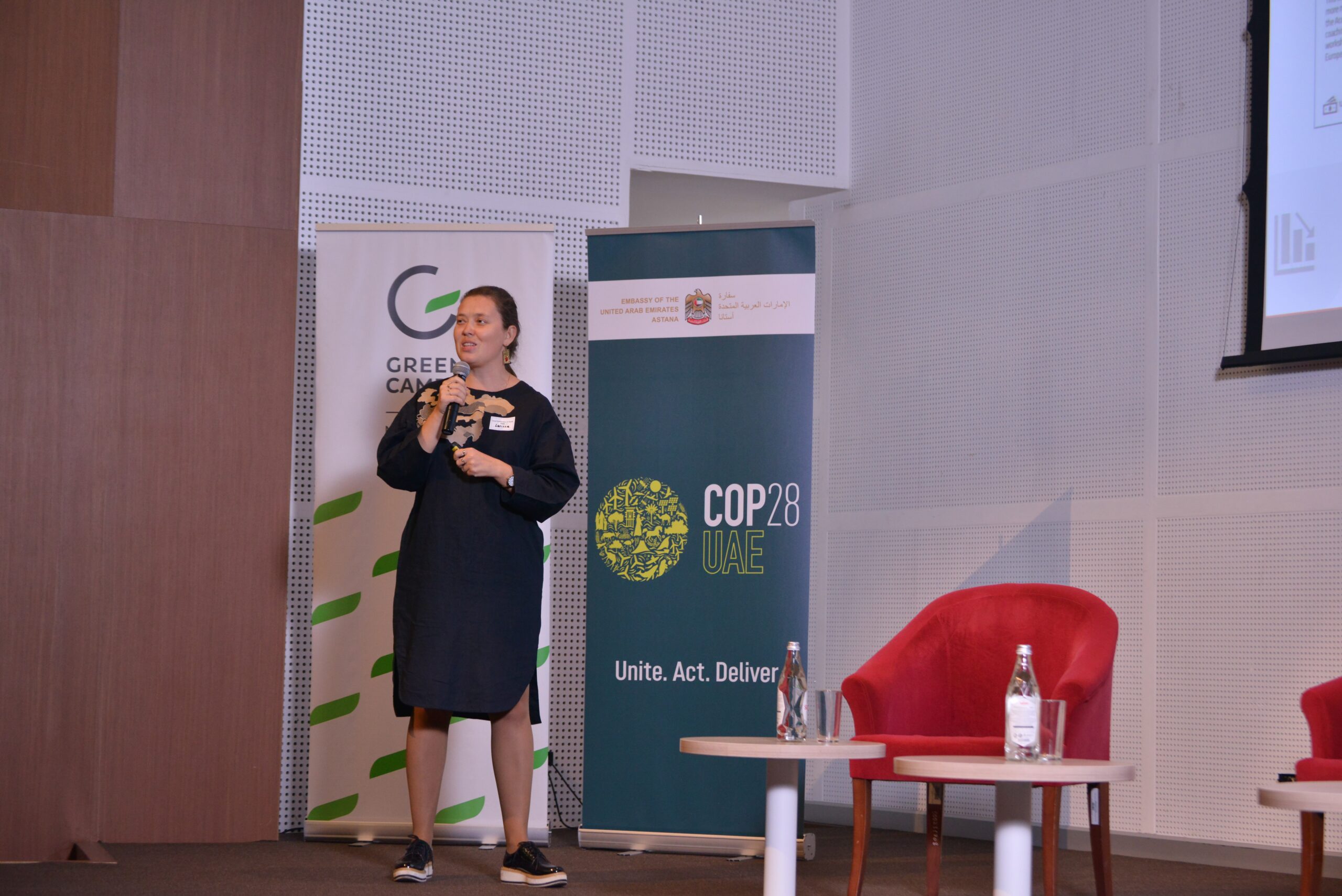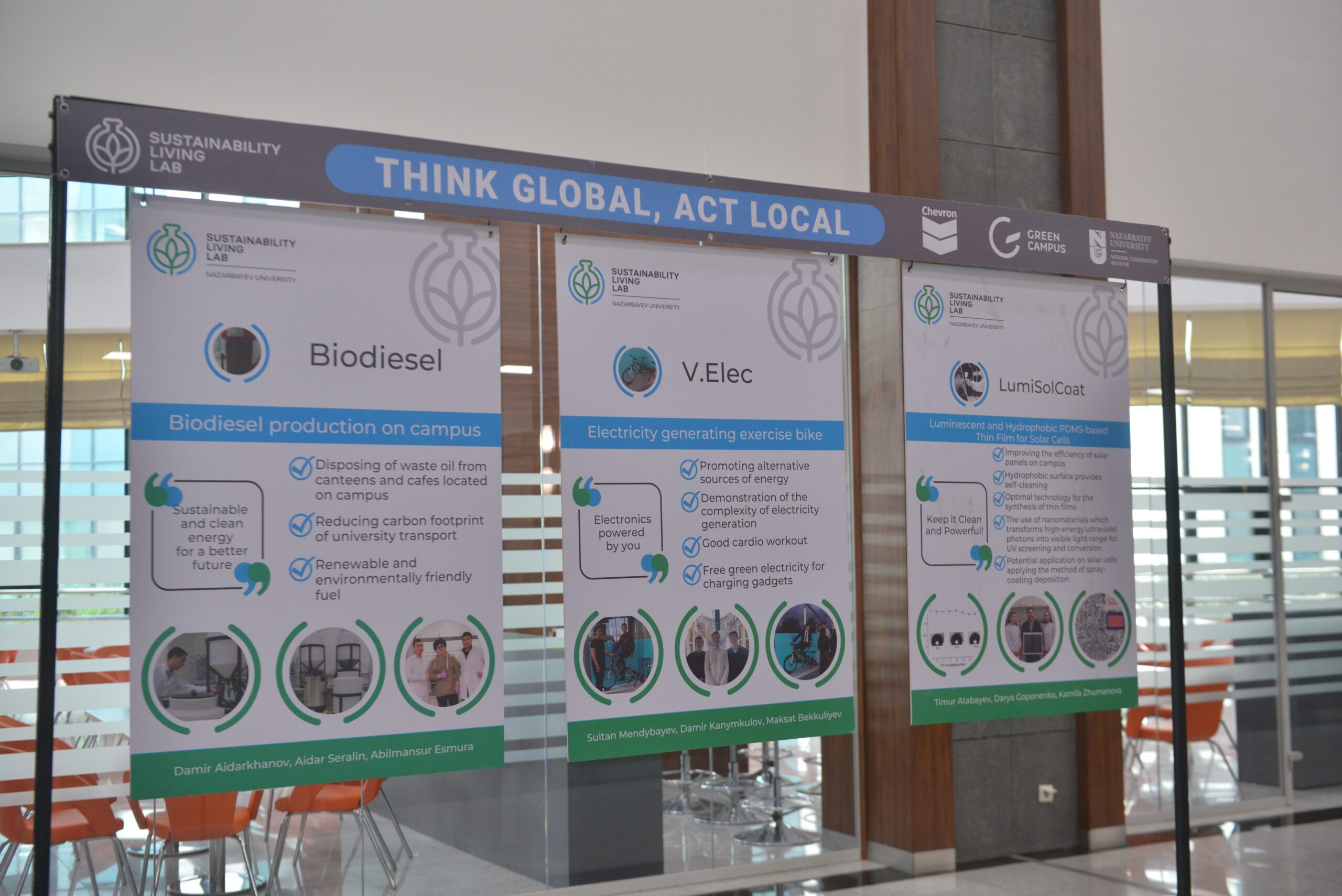ASTANA – Nazarbayev University hosted the Local Youth Climate Conference in Kazakhstan (LCOY Kazakhstan 2023) in Astana on Sept.28. The event plays a major role in the mission of YOUNGO, the official youth constituency of the United Nations Framework Convention on Climate Change (UNFCCC), and the Sustainable Development Solutions Network (SDSN) Youth Kazakhstan.

Photo credit: Nazarbayev University’s press service.
The annual conference brought together young leaders, researchers, and experts to engage in meaningful dialogues and collaborative actions related to climate change and sustainable development.
LCOY Kazakhstan 2023 coordinator Nikita Durnev noted that the conference aims to convene young delegates, impart foundational knowledge about climate change, offer insights into the science of this domain, and empower them with the essential skills to become proactive catalysts for advancement in this field.
“The Local Youth statement ultimately feeds into the Global COY and the subsequent UN Climate Change Conference (COP),” he said.

Larissa Kogutenko. Photo credit: Nazarbayev University’s press service.
The conference featured panel discussions covering a range of topics, including climate change in Kazakhstan, assessing the impact of climate change on the water sector, local solutions for climate adaptation, the importance and future prospects of widespread adoption and use of green, sustainable, and modern energy in Kazakhstan, among others.
Aida Tabelinova, representing the Kazakh National Geographic Society’s (Qazaq Geography), discussed the effects of climate change on the hydro-ecological system, proposing solutions. She emphasized the critical role of water in sustaining life and highlighted Kazakhstan’s vulnerability due to changes in the water cycle driven by regional and global warming.
She proposed several measures to address water-related challenges, including canal modernization, evapotranspiration reduction, and the construction of underwater basin accumulators.

Photo credit: Nazarbayev University’s press service.
Tabelinova also stressed the importance of incorporating environmental risks into the country’s strategic economic planning and urged the use of IT technologies to regulate water usage in economic sectors. She further discussed the fluctuations of the Caspian Sea, attributing them to both climate change and tectonic factors.
“The center of the Caspian Sea passes through the separation between the oceanic and Eastern European plates, causing fluctuations in water levels. These natural processes occurring along the Caspian coast serve as indicators of climate change. Consequently, studying phenomena such as deflation, salinity, and erosion plays a crucial role in understanding climate change dynamics. Addressing these challenges requires international cooperation among all five Caspian states. Qazaq Geography took the initiative this year to establish the Geographical Council of Turkic States, providing a platform to address these issues,” she said.
Larissa Kogutenko, a representative from the Kazakh-German University in Almaty, highlighted several impactful projects undertaken by the university to address climate change adaptation and mitigation in Kazakhstan. These initiatives span education, science, business collaboration, governance, and practical applications.
“It’s essential for us to integrate various climate-related subjects into all educational levels and processes. We aim to promote innovation and educate students about available technologies, encouraging them to explore this field further,” she said.
Kogutenko also described ongoing university activities, such as climate strike days and water days, where students engage in discussions about different opportunities and relay messages to the government.
“We organize various summer schools, including the Energy Trip Summer School, focusing on renewable energy sources and energy conservation. Students visit facilities in Kazakhstan and neighboring countries, showcasing best practices for climate change mitigation and carbon emission reduction. During these summer schools, we encourage students to conduct case studies and small scientific research to equip them for future contributions to combat climate change,” she said.
The conference featured a student exhibition of green projects, an art exhibition, and a climate-themed game called Climate Fresco, designed to enhance participants’ understanding of climate change and its consequences.
One of the most notable outcomes of LCOY Kazakhstan 2023 is a collaborative statement prepared by Kazakh youth. This statement will be presented at COP 28 in Dubai, the United Arab Emirates, providing young individuals with a unique opportunity to actively influence global solutions to climate change.
